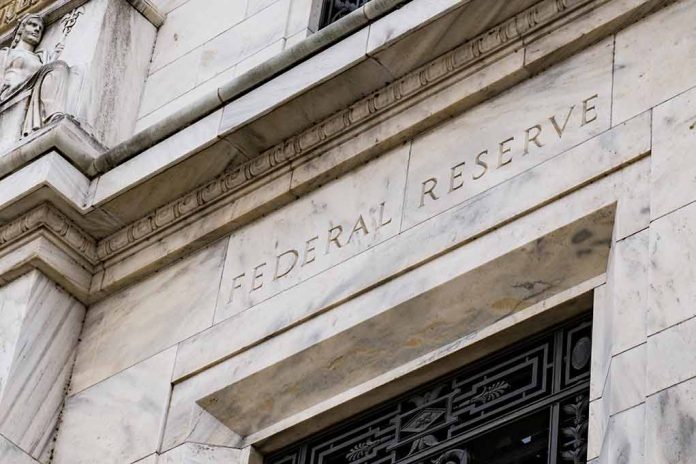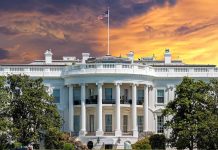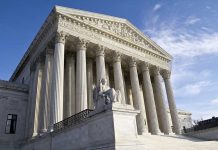
Elon Musk endorses Trump’s bold move to bring the Federal Reserve under White House control, sparking a fierce debate on monetary policy independence.
At a Glance
- Elon Musk supports Trump’s proposal to place the Federal Reserve under White House control
- Trump promises lower interest rates, criticizing current Fed policies
- Senator Mike Lee introduces bill to abolish the Federal Reserve, calling it an “economic manipulator”
- Fed Chair Jerome Powell asserts the president cannot legally remove a Federal Reserve chair
- Musk’s endorsement raises concerns about potential pressure on Fed independence in a future Trump administration
Musk Aligns with Trump on Federal Reserve Control
In a stunning development that has sent shockwaves through the financial world, tech titan Elon Musk has thrown his weight behind Donald Trump’s controversial proposal to bring the Federal Reserve under White House control. This endorsement marks a significant escalation in the ongoing debate about the independence of America’s central bank and its role in shaping monetary policy.
Musk, the billionaire founder of Tesla and SpaceX, signaled his support for the proposal by responding with a “100” emoji to a social media post by Republican Senator Mike Lee. The post advocated for placing the Federal Reserve under the direction of the Executive Branch, with Lee arguing that this aligns with the original intent of the Constitution.
Trump’s Vision for Federal Reserve Reform
Former President Trump, gearing up for another White House run, has been vocal about his intentions to exert more control over the Federal Reserve if re-elected. Trump has repeatedly criticized the current Fed Chair, Jerome Powell, for not easing monetary policies quickly enough, despite having appointed Powell himself in 2017.
Trump’s critique of the Federal Reserve’s independence stems from his belief that his business acumen qualifies him to make better monetary policy decisions. This stance has resonated with his base, who view the Federal Reserve as an unelected body wielding too much power over the economy.
The Push to #EndTheFed
Senator Mike Lee has taken the critique of the Federal Reserve a step further by introducing a bill to abolish the institution entirely. Lee has labeled the Federal Reserve an “economic manipulator that has directly contributed to the financial instability many Americans face today.” This extreme position has gained traction among certain conservative circles, with the hashtag #EndTheFed gaining popularity on social media platforms.
The movement to end or significantly reform the Federal Reserve has found an unlikely ally in Elon Musk. Musk’s endorsement of efforts to erode the Federal Reserve’s independence has increased the influence of his platform, X, in policy discussions. This alliance between Trump, Lee, and Musk represents a formidable challenge to the status quo of monetary policy in the United States.
Resistance from the Federal Reserve
Fed Chair Jerome Powell has made it clear that he is prepared to challenge any White House attempts to control the Federal Reserve in court. Powell has stated that the president’s ability to remove a Federal Reserve chair is “not permitted under the law.” This stance sets the stage for a potential legal showdown if Trump were to win the presidency and attempt to implement his vision for Federal Reserve reform.
“I don’t think I should be allowed to order it, but I think I have the right to put in comments as to whether the interest rates should go up or down.” Trump’s statement reflects a nuanced position on Federal Reserve independence, suggesting a desire for influence rather than outright control.
The debate over Federal Reserve independence is not merely academic. The central bank’s ability to set monetary policy free from political influence has long been seen as crucial for maintaining economic stability and preventing short-term political interests from dominating long-term economic health. However, critics argue that this independence has led to policies that don’t always align with the needs of average Americans.
Implications for the Future
As the 2024 election approaches, the future of the Federal Reserve hangs in the balance. Trump’s promise of lower interest rates and Musk’s backing have energized a base that is eager for economic change. However, the potential erosion of Federal Reserve independence raises concerns about market stability and the long-term health of the U.S. economy.
The alliance between Trump and Musk, two of the most influential figures in American business and politics, signals a potentially seismic shift in how monetary policy could be shaped in the coming years. As this debate unfolds, Americans will need to weigh the promise of more responsive economic policies against the risks of politicizing one of the nation’s most crucial financial institutions.






















